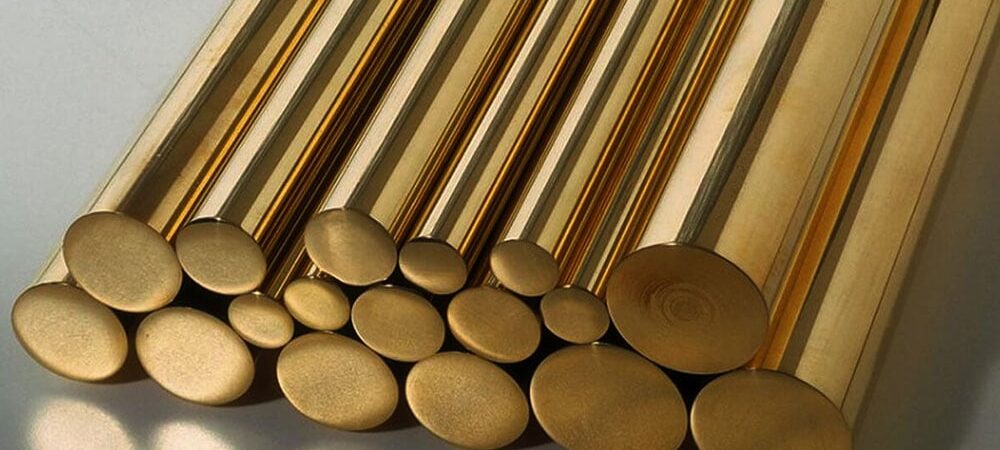In a world that’s growing increasingly digital and automated, there’s still one essential element that quietly supports countless industries—brass components. Whether it’s automotive, electrical, plumbing, telecommunications, or industrial automation, precision-engineered brass parts play a crucial role in ensuring systems are efficient, safe, and long-lasting.
India has emerged as a global hub for brass components manufacturers, and among the most renowned regions for this craft is Jamnagar, often dubbed the “Brass City of the World.” But what makes this segment so vital? And how are Indian manufacturers—particularly those from Jamnagar—setting new standards in performance, innovation, and global supply?
Why Brass? Understanding the Material’s Versatility
Before we dive into the market dynamics, it’s essential to understand why brass continues to be the material of choice across industries. Brass, mainly composed of copper and zinc, provides a distinctive mix of properties.
- Corrosion resistance
- High conductivity
- Malleability
- Durability
- Aesthetic appeal
These characteristics make it suitable for crafting connectors, terminals, inserts, fittings, valves, and electrical components. As industries grow more complex, demand for brass precision turned components has surged due to their ability to meet exacting tolerances.
Jamnagar: India’s Brass Industry Hub
Jamnagar is renowned for its history in metalwork and hosts thousands of small to medium-sized businesses focusing on brass components manufacturing. The city boasts a strong ecosystem of raw material suppliers, skilled labour, precision machining units, and export facilitators.
When buyers worldwide seek a reliable brass parts manufacturer in Jamnagar, they can be assured of affordability without compromising on quality. This region has built its reputation through consistent delivery, customisation capabilities, and adherence to international standards.
From ISO-certified workshops to CNC machining facilities, Jamnagar’s brass industry is no longer just labour-intensive; it is embracing smart manufacturing to stay ahead.
What Makes a Reliable Brass Manufacturer?
With increasing global competition, not all brass manufacturers are created equal. Here are the key factors that set the leading players in this field apart:
1. Precision Engineering
The ability to manufacture with sub-micron accuracy using modern tools, such as CNC lathes, is what makes the best brass manufacturers in India stand out.
2. Material Testing
Quality starts at the base. Reliable companies make sure that raw brass complies with standards like RoHS, REACH, and others, giving you peace of mind about the quality and safety of the materials.
3. Customisation
Industries often need tailor-made solutions. Leading manufacturers offer flexibility in size, thread type, finish, and performance specifications.
4. Consistency and Scalability
A single sample isn’t enough. Manufacturers must show the ability to scale production without compromising quality—something top-tier brass components manufacturers in Jamnagar have mastered.
5. Global Shipping & Compliance
With exports to Europe, the Middle East, and the Americas, international packaging standards, certifications, and delivery timelines are critical benchmarks.
CNC Components: Driving Modern Manufacturing
CNC (Computer Numerical Control) machining has been a game changer for brass precision turned components. With tight tolerances, repeatability, and smooth surface finishes, CNC machining is crucial for applications such as aerospace connectors, electronic terminals, and high-pressure valves.
The rise in demand for CNC component suppliers from India indicates global trust in the country’s machining capabilities, particularly for medium- to high-volume production.
Emerging Trends in Brass Manufacturing
● Eco-Friendly Machining
Manufacturers are exploring ways to reduce waste, recycle scraps, and use biodegradable lubricants in their production processes.
● Smart Component Tagging
QR-coded and laser-marked parts are gaining popularity for traceability across the supply chain.
● High-Performance Alloys
There’s increasing interest in non-standard brass alloys tailored for high-heat or high-friction environments.
● Digital Integration
ERP, CAD/CAM, and real-time monitoring tools are helping brass components manufacturers offer better accuracy, delivery, and customer communication.
Use Cases Across Industries
Brass parts are everywhere—even if hidden. From the electrical pins in your plug socket to the valve inside a bathroom tap, they serve critical roles in:
- Automotive: Battery terminals, sensor parts, and fuel system connectors
- Electronics: PCB terminals, plugs, sockets
- Plumbing: Pipe fittings, couplings, flow control valves
- Telecom: RF connectors, grounding equipment
- Renewable Energy: Battery components, inverter parts
This diversity in application ensures that brass manufacturers remain integral to India’s industrial growth.
Challenges and the Road Ahead
Despite its strengths, the Indian brass industry faces challenges like volatile raw material prices, labour shortages, and the need for upskilling. Yet, increased investment in automation, exports, and product diversification is helping bridge these gaps.
Government schemes promoting “Make in India” and industrial clusters in Gujarat continue to drive innovation and infrastructure development for the sector. These efforts are positioning Indian brass manufacturers as dependable partners in the global supply chain.
The importance of brass components manufacturers in India’s industrial ecosystem cannot be overstated. From the precision engineering of brass precision turned components to the expansive capabilities of brass parts manufacturers in Jamnagar, these suppliers keep modern industry moving, quietly and reliably.
As global demand rises and industries become more specialised, choosing the right brass manufacturers in India becomes essential. With innovation, experience, and a strong commitment to quality, India’s brass industry is not only sustaining but thriving, ensuring seamless operations across sectors that rely on performance, precision, and trust.


